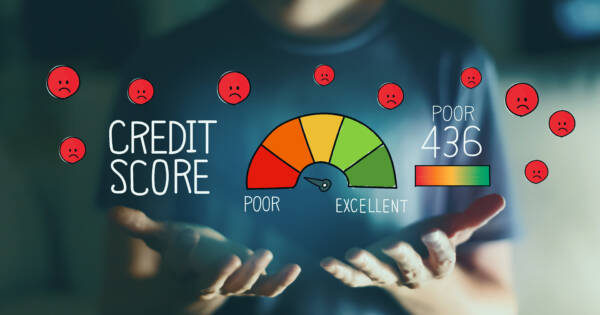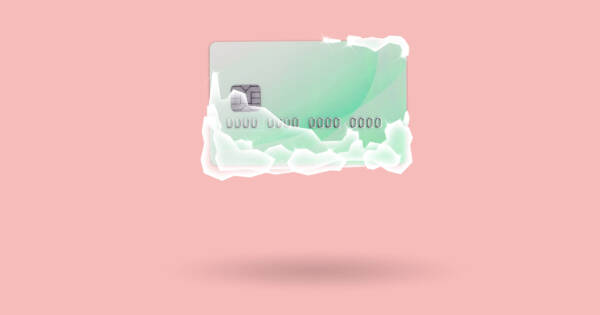Credit cards are financially floating many individuals and families these days — especially in the wake of the pandemic. However, they are costly sources of borrowing money. It’s more crucial than ever to keep an eye on your expenses and cut down on spending. Living within your means and not taking on extra credit debt takes discipline. However, it’s definitely worth it in the long run. One way you can ensure you’re sticking to your financial boundaries is to look at your credit card statement each month. Not only should you scan it for mistakes or strange purchases, but it’s also worth paying attention to your credit utilization.
If you’re not sure what your credit utilization is, you’ve clicked on the right article. We’ll introduce you to this financial concept, along with how to calculate your own number. If you don’t like the percentage you come up with, don’t panic. We also have some suggestions on how to improve your credit utilization. That should help our your credit score for the next time you apply for any type of credit.
Calculators ready? Let’s go!
What is a Credit Utilization Number?
Most credit cards come with a credit limit. It defines how much you can borrow before your card is maxed out. Your credit utilization number, “also known as your credit utilization ratio or debt-to-credit ratio,” can be expressed by comparing your balance to the total available credit. Effectively, a credit utilization number “measures how much credit you are using compared to how much you have available.” Credit utilization numbers are only based on revolving credit, like credit cards or lines of credit. They don’t include things like mortgages or auto loans.
For example, let’s say you have have a single credit card with a $10,000 credit limit. Due to whatever circumstances, it seems stuck at about a $3,000 balance that you can’t quite seem to get rid of. Based on this sole credit card account, your credit utilization is 30%. In other words, you’re using 30% of all your available credit. The higher your credit utilization score, the worse you look to new potential lenders. If you have a bunch of maxed out credit cards, you utilization number is very bad (and your credit score will reflect that too).
Why It Matters
So what value does your credit utilization number have, beyond a simple mathematical equation? Well, many creditors “use this information to determine how responsible you are with the credit you’ve been given in the past.” Using less credit typically translates to an increased ability to responsibly manage your money — at least in the eyes of the creditors.
However, your credit utilization ratio can also affect your interest rate or down payments requirements for certain loans. It’s like a teeter-totter; when your credit utilization goes up, your credit score goes down. When your utilization drops, your credit score will rise. Paying attention to your credit utilization is just one of the many factors to pay attention to if you’re trying to improve your credit score.
How to Calculate
Unlike your credit score, your credit utilization is easy to calculate. You won’t even need a fancy calculator for this math problem. All you have to do is divide your credit balance by your credit limit. That would mean a balance of $400 on a credit card with a limit of $10,000 would be a credit utilization of 4%. While you probably won’t come out with nice round numbers like a whole percentage, you should be able to get a general idea of your credit utilization number.
If you have more than one piece of revolving credit, be sure to include them all. Having a line of credit with zero balance but also a maxed out credit card won’t do you any favors. Simply add up all your balances (including store credit cards) and compare them to the combined credit limits. Hopefully, you don’t come out with a number too high. Remember that a high balance on a single card can throw your whole utilization ratio into the trash, even if your other cards are hardly used.
What is an Ideal Credit Utilization?
Conventional wisdom dictated that any credit utilization number under 30% would be sufficient to keep your credit in good standing. Other experts argued a utilization ratio of 0% would be best. However, neither of these approaches quite hits the mark. For most of us, hitting that 0% hard is pretty hard anyway.
Instead of focusing on a particular number, put your effort into managing your credit wisely and responsibly. As CNBC reports, the “key is to feel comfortable putting everyday expenses on your card with the knowledge you can pay off the bill at the end of the month.” Sometimes emergencies require us to extend ourselves with credit cards. When that happens, carrying a larger balance for a few weeks (or even months) might be necessary. However, once you’re able to pay down that emergency charge, your ratio percentage will decrease.
If you’re looking for a particular number to shoot for, “some experts recommend aiming to keep your credit utilization rate at 10% (or below) as a healthy goal to get the best credit score.” A credit utilization ratio in the single digits will show that you’re actually using credit, but it will also indicate that you’re paying off your balances. A 0% utilization ratio can actually be bad, as companies may close your account due to inactivity. This will also cause your credit score to drop.
How to Improve your Credit Utilization?
If you find yourself with a credit utilization ratio that’s more than you’re comfortable with, here are a few suggestions for decreasing that ratio.
- Pay down your existing balances. Using less of your total available credit will decrease your utilization ratio.
- Consider a balance transfer card. This can definitely help if you’re trying to get on top of a balance and need some breathing room. Balance transfer offers attractive short term rates, when used properly.
- Ask for a credit limit increase. More available credit will lower your utilization ratio.
- Apply for another credit card. Having another credit card means more available credit. If you don’t use it, your utilization number will happily drop. However, be aware that a new credit card will cause a hard credit inquiry on your credit report. You may see your score drop temporarily, before it rises again.
- Ask for a reduced interest rate. A lower interest rate will increase the effectiveness of your payments, as more of your payment will go towards principal. That can help reduce your monthly balance, which will drop your utilization ratio.
- Refinance with a personal loan. While this will also ding your credit a bit, a single payment may help you more easily manage your debt.
- Set up alerts with your bank. Alongside being able to check your credit score, most banks will allow you to see how much of your credit you’re currently using. You should manually check every once in a while, but you may also be able to set up text or email alerts if you hit certain utilization thresholds.
One More Thing…
Above all, do not close any of your credit cards once you have paid them off. Not only will it impact your utilization number (remember, it’s a measure how much available credit you’re not actually using), it will also affect your credit history. As in, it will erase that card from your credit history entirely. Closing a credit card will almost always cause your credit score to drop.
The important thing to remember with both credit utilization ratios and credit scores take time to change. You will need to give these scores a few weeks (and even months) to fully reflect your smart financial decisions. So just be patient if things aren’t moving as quickly as you want. Even though you may have taken steps to decrease your credit card debt, your ratio may take some time to catch up.
Lower Your Ratio, Increase Your Success
Having a high credit utilization ratio doesn’t always impact everyone in the same way. However, it will likely help you look better in a creditor’s eyes if your utilization number is lower. We hope this article has helped you understand what a credit utilization number is, why it matters, and how you can improve your own ratio with a few steps. Credit may be a hard financial subject to master, but with the right tools, success is possible.
 Shutterstock
Shutterstock







